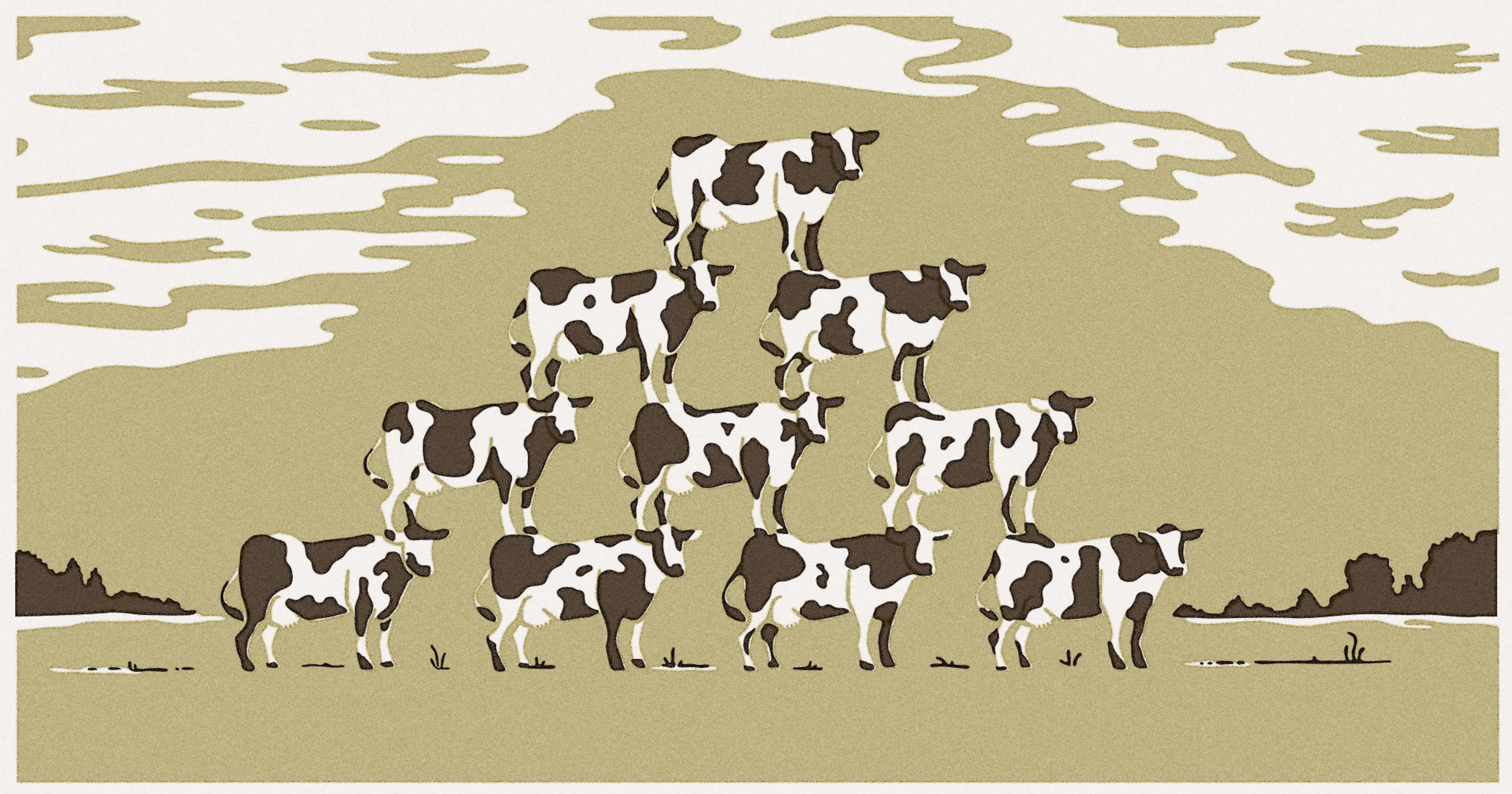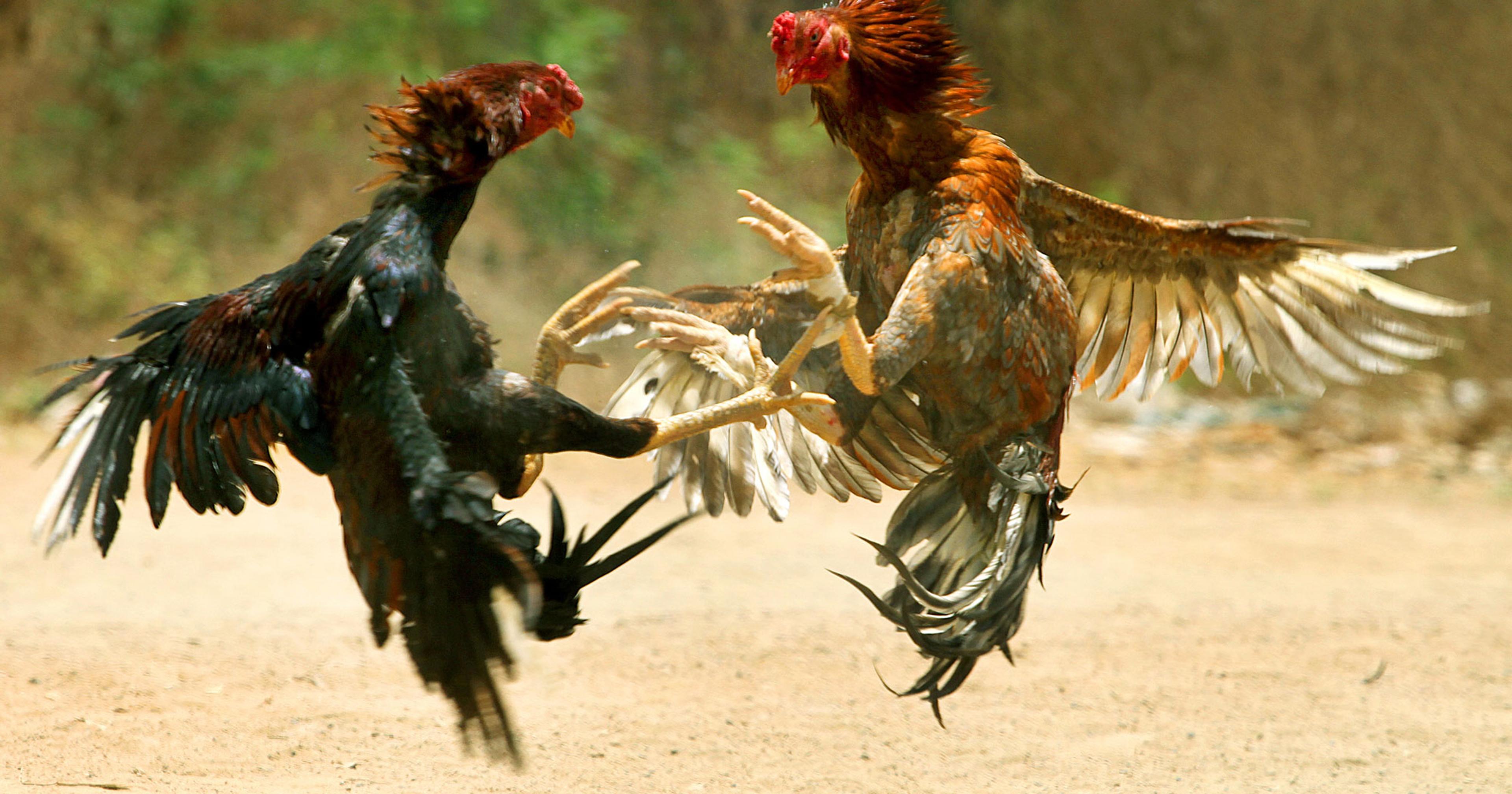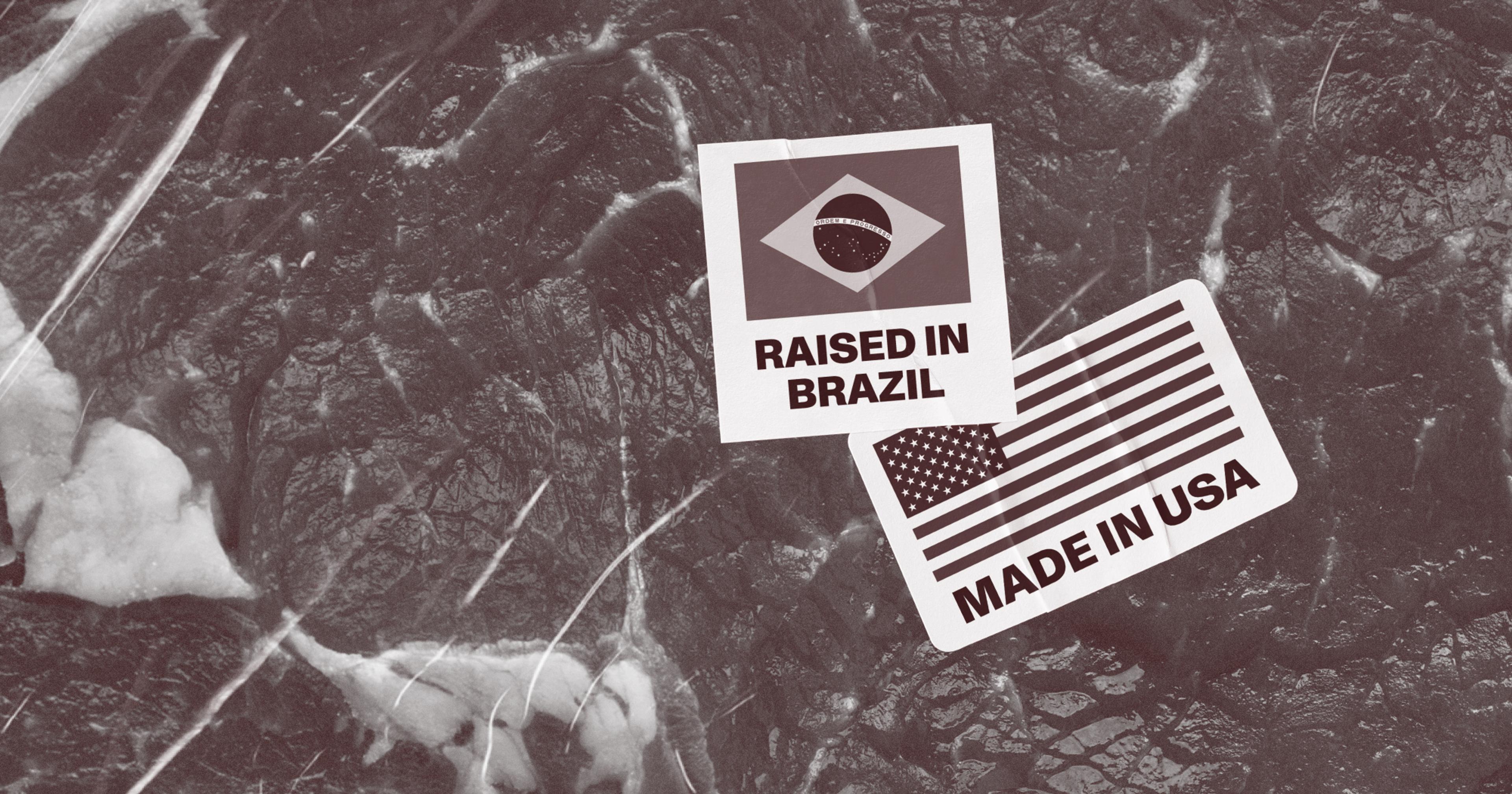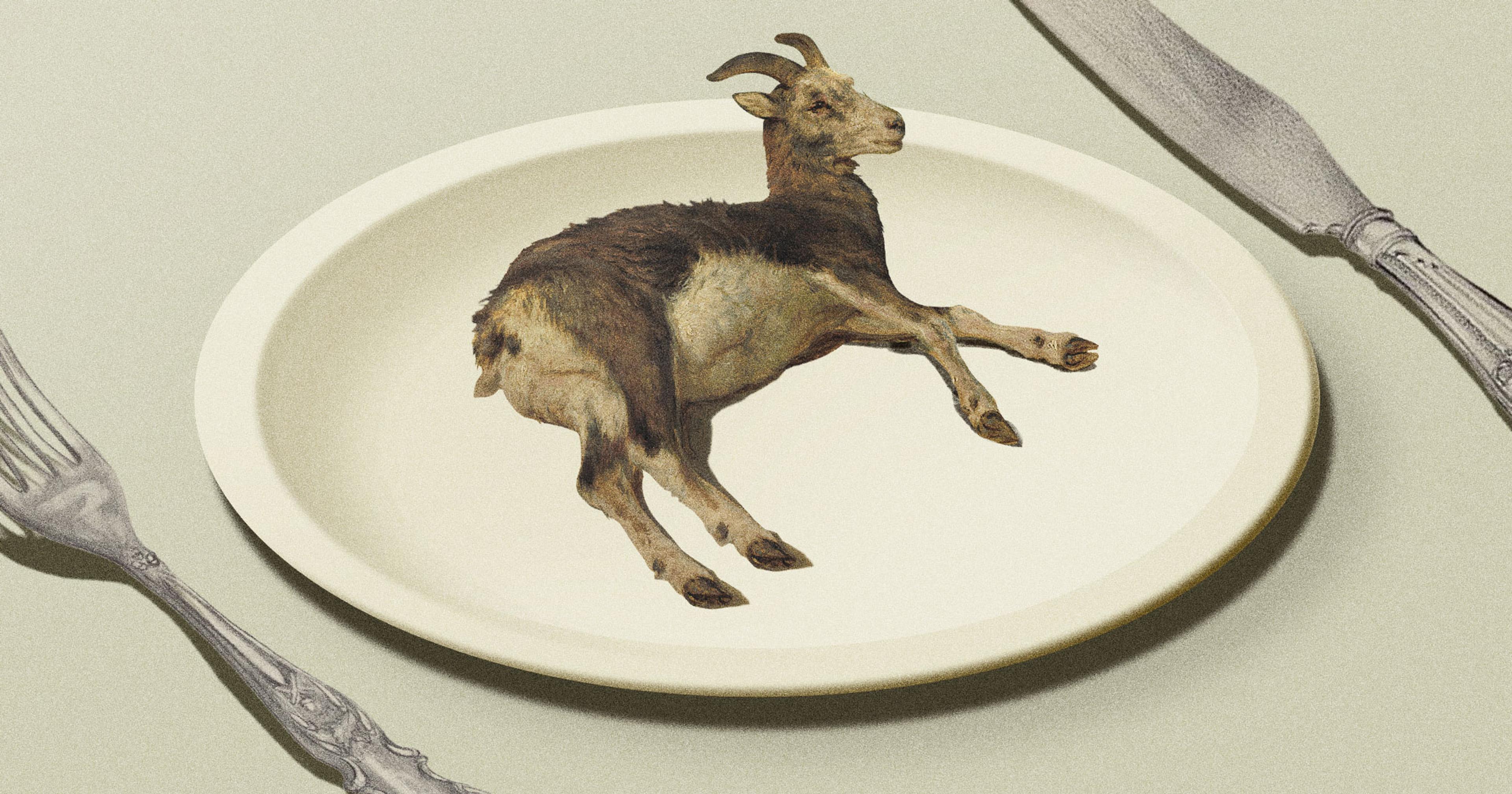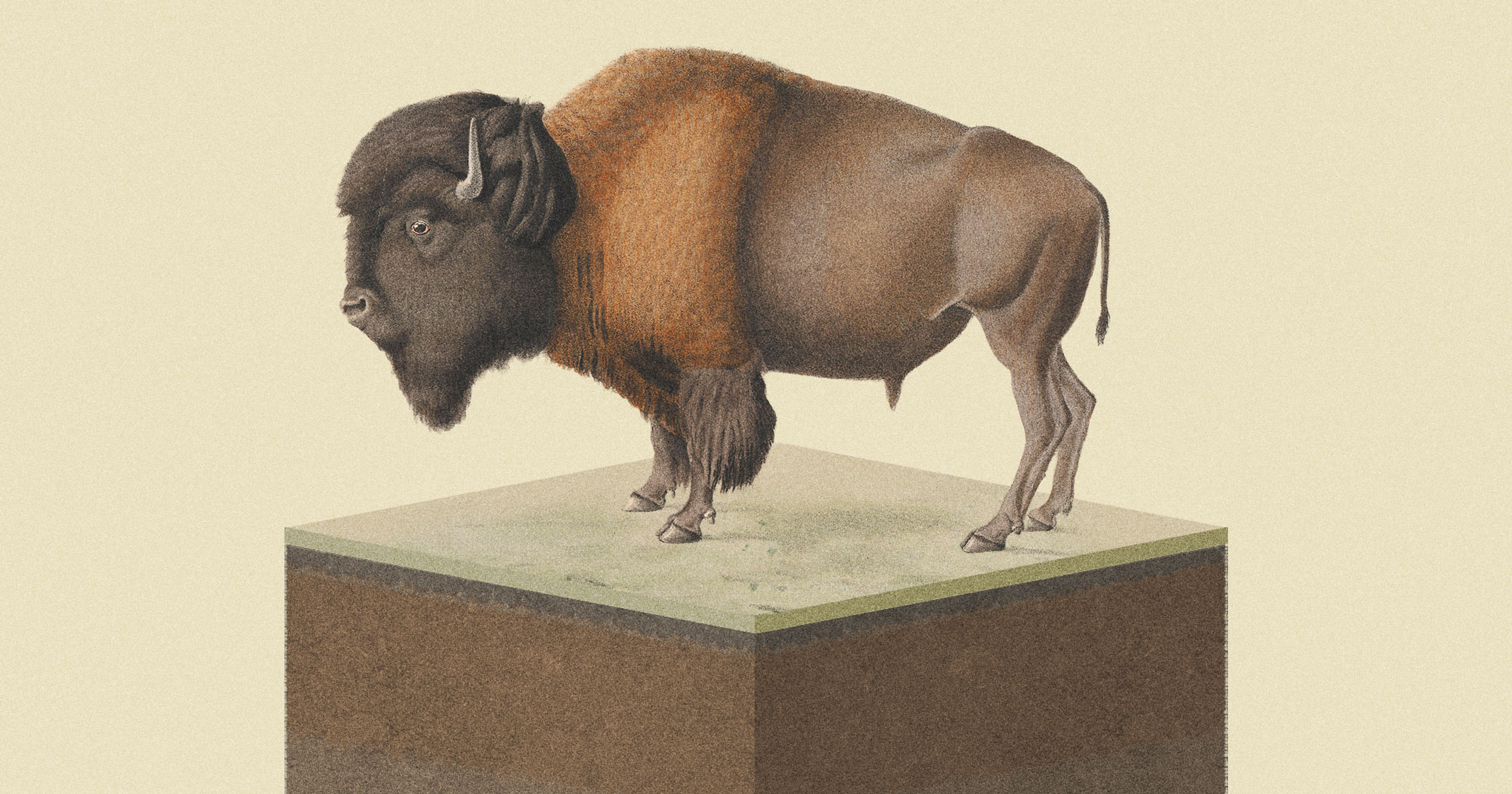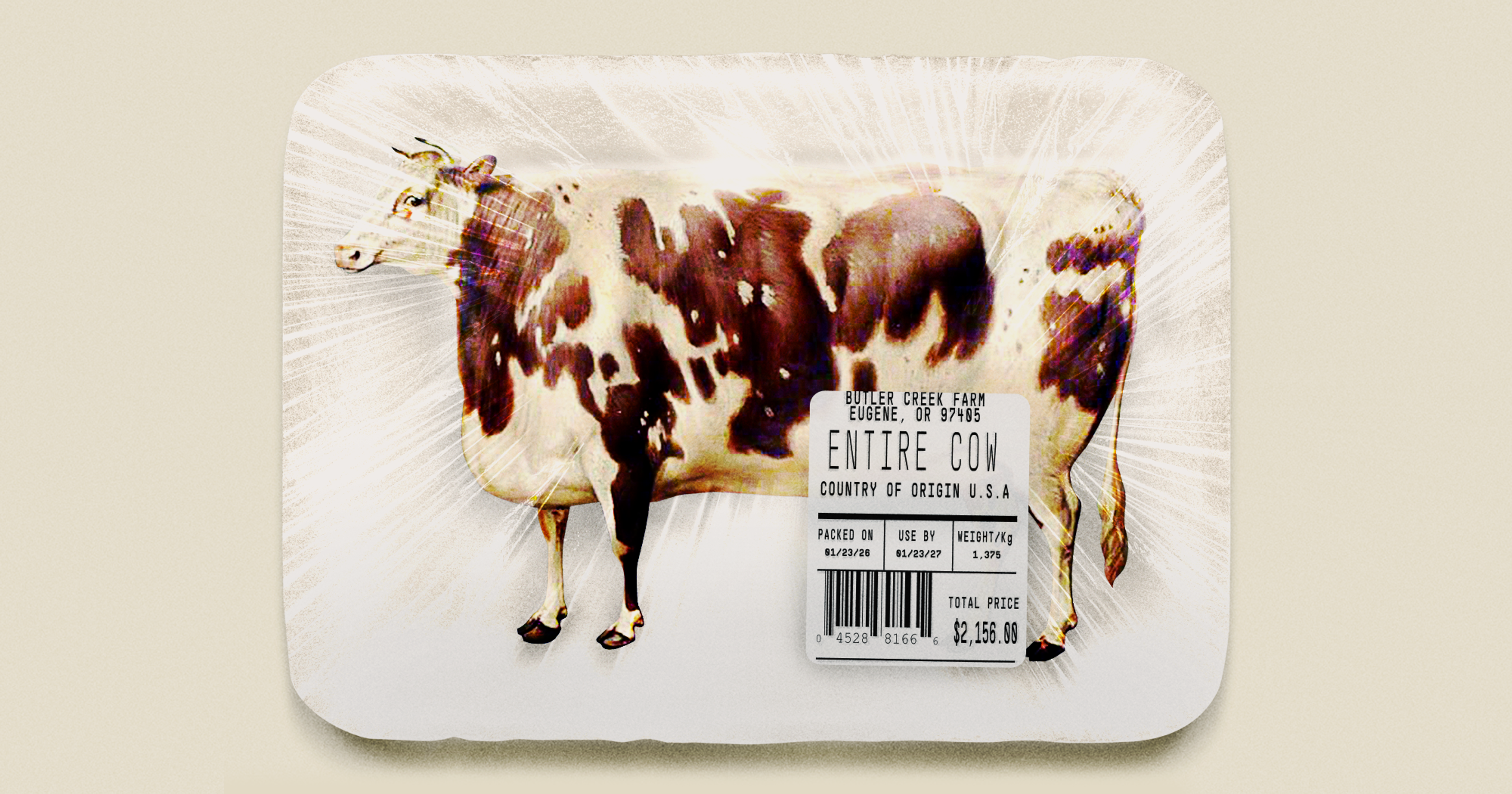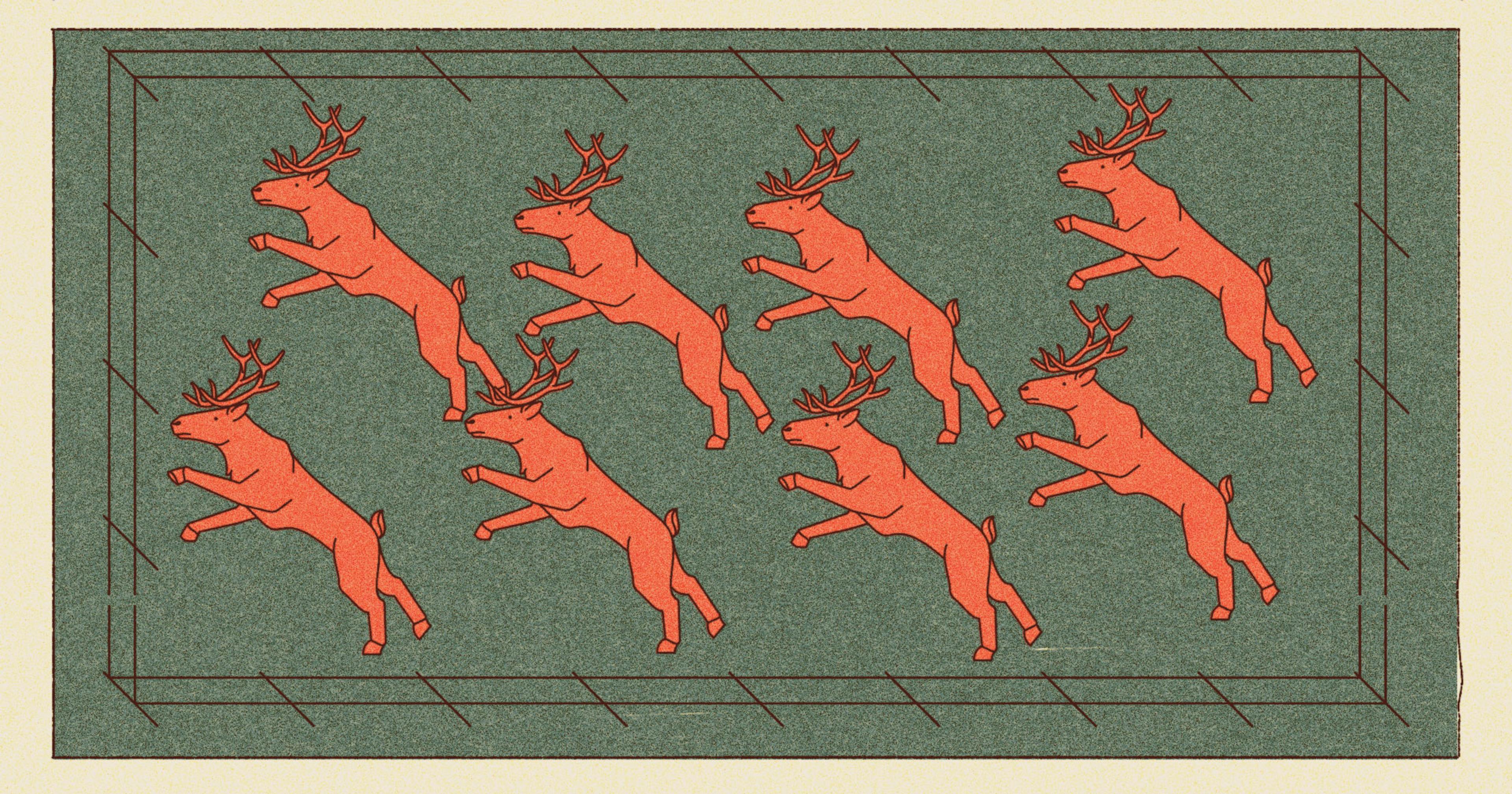Wholesale beef supplier Agridime told investors the deal they offered “sounded too good to be true” — and it was.
When you think of Ponzi schemes, you might think of offshore banks, Bernie Madoff, or bogus insurance settlements. For North Dakotans, the phrase may now conjure a field of cattle.
In 2021, representatives from a Fort Worth, Texas-based company called Agridime started reaching out to potential investors in the cattle industry, offering a deal that their own website acknowledged “sounds too good to be true.” Across at least 15 states, Agridime reps negotiated investment contracts related to the sale and purchase of cattle, promising 15 to 32 percent returns on the investment. Prices on the cattle market had been steadily rising, making it an enticing time to get in on what sounded like a great deal.
Agridime targeted ranchers who could sell their cattle to the company, people who might be interested in investing in cattle, and beef distributors. When approaching ranchers, the company pitched itself as a one-stop shop: They would take the cattle to their own company plots, feed and rear them, process them for meat, and market and sell the beef. Then, after selling their cattle, ranchers and farmers were reapproached by Agridime, who convinced many of them to turn around and reinvest their profits. The company promised to buy more cattle with that reinvestment, which they said would ultimately bring more money back to the ranchers.
But according to North Dakota Agriculture Commissioner Doug Goehring, who oversees the licensing and bonding of livestock dealers in the state, that money wasn’t going toward more cows or their feed and processing.
“They bought just enough livestock so if somebody showed up wanting to see their cattle, they could take them to the feedlot and show them,” said Goehring, who noted some of those funds were pocketed, while the rest was used to pay back existing investors.
North Dakota was hit especially hard by Agridime’s scheme. In 2023, regulators there and in Arizona issued cease-and-desist orders against the company. But even after those orders were in place, Agridime sold more than $9 million in cattle contracts to North Dakotans, according to the Securities and Exchange Commission. The SEC shut down Agridime in December, and in February, a federal judge in Texas appointed a receiver who took possession of the company’s assets. In total, the SEC alleges that the company raised at least $191 million from more than 2,100 investors. The SEC declined to comment beyond their public filings.
Usually when livestock are purchased, Goehring said, the buyer has to pay the seller within 24 hours, creating a paper trail. But Agridime used a “retained ownership” method, taking the cattle out of state to feed and process them elsewhere, promising to pay after they finished. Because the sellers technically retained ownership, the company was able to buy themselves time and fly under the regulatory radar, according to Goehring.
“They bought just enough livestock so if somebody showed up wanting to see their cattle, they could take them to the feedlot and show them.”
It was a banker who finally put the scheme on the agriculture commissioner’s radar: A customer described the amazing investment they believed they were making by selling their cattle to Agridime, and the banker flagged it for Goehring’s office, recognizing the deal was deceptive.
Agridime struck at a good time in the cattle industry. Prices were rising — a trend that continues today — which sweetened the prospects for potential investors.
“When they started this little scheme, the price of livestock on the hoof were just continuing to go up, and it’s easy to sell that concept and say hey, let’s do another roll, let’s buy some more for later because holy cow, we’re making this thing work,” said Goehring. “It was a perfect storm, it was working in their favor and easier to sell as long as people wanted to keep believing it.”
Prices have risen in recent years as the population of cattle in the U.S. has declined. As of January, the nation’s inventory was the lowest it has been in 70 years, according to the American Farm Bureau Federation. This declining population is largely the product of severe drought: Less rain means less grain and hay, and less grass for grazing, pushing record-high prices for feed that have driven some families out of ranching entirely. But while rising prices mean consumers are paying more for beef, individual cattle producers aren’t seeing those profits.
“Expenses are as high or the highest they’ve ever been too, so the actual bottom line to the rancher has not changed much, or very little at all,” said Justin Tupper, a South Dakota-based cow-calf producer and president of the U.S. Cattlemean’s Association, which lobbies for cattle producers on Capitol Hill. “The perspective is that there’s much more money flowing so they’re making more money, and that’s not necessarily the case.”
“Their product was not good at all. The ground beef came frozen, we thawed it, it smelled bad.”
This opportunity to cash in during a time when most small ranchers and farmers are stretched thin is one reason Agridime’s offer held such appeal. The company also capitalized on a pandemic-driven reliance on smaller meat processors who compete with the “Big Four”: Cargill, Tyson, JBS, and National Beef. When some of these massive companies’ processing facilities had to shut down in 2020, more business was funneled to their smaller competitors. The use of smaller processors and distributors also dovetailed with the growing consumer interest in knowing where their meat comes from, and in keeping it local.
“The way that Agridime talked about the ranchers get paid, you get paid, the product stays in the U.S., I was like oh man, maybe they have something figured out,” said Matt, a partner in a Montana-based beef distribution company that did business with Agridime. “There was a sense of hope.” (Matt asked that we use a pseudonym to protect his and his company’s identity, which is still recovering from the financial and reputational impact of doing business with Agridime.)
Matt’s business partner was initially approached by an Agridime rep as a potential investor. Although his partner wanted to work with them, Matt was skeptical: “For someone to flat out say that we would get a 30 percent return on investment in whatever we invest, whatever cows we buy, was just unheard of to me because the beef market fluctuates so much.” He had no interest in investing in what he called “ghost cows.”
They passed on the initial pitch, but the Agridime rep was persistent. They suggested Matt’s partner come down and see their facilities in Fort Worth, which he did. Agridime was looking to expand their beef distribution presence in the West, and saw Matt’s company as the perfect vehicle. His partner, who was the primary owner of the company, was fully sold on the idea, so Matt begrudgingly felt he had to follow his lead. They proceeded to order more than $100,000 in beef from Agridime, sold to them at competitive prices that were hard to turn down. Then it arrived.
“Their product was not good at all,” said Matt. “The ground beef came frozen, we thawed it, it smelled bad, you could tell it wasn’t a fresh product.”
They tried to sell and move what they could, but started getting complaints from customers. Higher-end cuts of beef had to be ground and sold at a much lower cost.
“They have cussed and swore and called you every name in the book, and your mother some too.”
In addition to losing tens of thousands of dollars, Matt and his partner are still contending with the reputational fallout of trying to sell Agridime’s poor-quality product. Some of their old customers will no longer work with them. He said they are taking the loss in stride and approaching every aspect of their business more carefully.
Schemes of this scale are unusual in the cattle industry, but the broader agriculture world, and particularly the organic sector, is no stranger to scams. Goehring noted that he’d seen similar fraud in the grain industry “more often than you’d care to know.”
Back in North Dakota, Goehring is contending with a lot of frustrated cattle producers. Rather than seeing the intervention of his agency and the SEC as a positive thing, the freezing of Agridime’s assets has angered people who believe they might have gotten paid if only the business could continue operating.
“They have cussed and swore and called you every name in the book, and your mother some too,” said Goehring.
That anger, pain, and embarrassment is understandable to Goehring, a third-generation farmer who has watched the costs of maintaining a farm skyrocket over the years. It’s an industry full of people who work tirelessly to put food on their own tables.
“Anytime that you have these fake schemes or things that take money out of the ag sector, it’s tough on small rural communities and small family farms that tried to better themselves by investing in them,” said Tupper. “It definitely has an impact, it has a ripple effect all the way down.”
Josh Link, co-owner of Agridime, did not respond to a request for comment.

